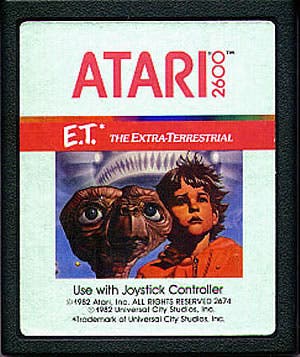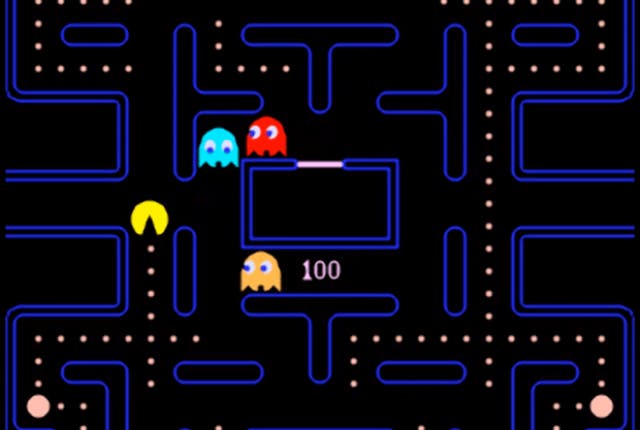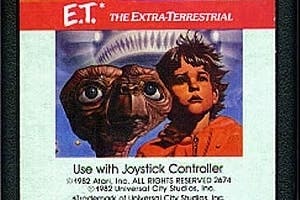The E.T. excavation: Why we need to remember the industry's biggest flop
An interview with the company unearthing Atari's darkest hour.
A couple of months ago multimedia company Fuel Entertainment announced that it would be making a documentary about excavating the legendary E.T. cartridges that were allegedly buried in a New Mexico desert in September of 83. It's a fascinating project, to be sure, as it revisits one of the industry's most catastrophic moments. To find out more about this project, I spoke to Fuel's director of communications Nick Iannitti.
First off, I ask Iannitti how confident he is that there's actually something there, as there are a lot of conflicting reports about exactly what went down in 83.
"We're confident enough to dig for it," he laughs. "As you saw if you watched any TV interviews or read any articles [featuring] the mayor and other folks who were involved in it in the 80s - there appears to be a very strong chance that something was buried there from Atari. Whether it's the mythical El Dorado of ET cartridges, we don't know. But the only way to find out is to dig for it."

So why dig it up now? The game was allegedly utter dreck to begin with and despite its infamous burial, it's not that hard to find a copy. But it's not about finding E.T. Rather, it's about understanding the significance of what occurred during that dark chapter of the medium's history.
"I think a part of the story is the significance of what it represents," says Iannitti. "E.T. was one of the first licensed games based on a movie that we'd seen and the marketing around it was huge. It was one of the earliest examples of an over-hyped marketing push that exists in the game industry... So it's a look back at what was a simpler time and relating it to where we've come to. What we actually find is sort of a bonus to that, but tracking down all the info and learning about the history of the event is really a big part of the story."
"So what does the almost mythical Atari/E.T. burial mean to you?" I ask.
"It was sort of the front-runner of this idea that licensed games are necessarily poor, because they're operating under a set of parameters where it's difficult to succeed the way a truly original IP could succeed," says Iannitti who notes that E.T. was developed in a scant six weeks. "So it represents the first kick of the can for a major pop-culture phenomenon based around a movie-based game."
"The significance was that it was one of the first times where an assumption was made that based on a license alone, we would have a hit on our hands. It was one of the first hard lessons that that's not necessarily true. At all."
But the E.T. story had some positive connotations, too, before it went belly-up. "It also represents a time when gaming really became mainstream for the first time - like home-based gaming. And that's what Atari represents. It's empowering, but it's a little bit sad because they were the first massively distributed home console. I think Pac-Man sold something like 7 million copies at the time... People would dream to sell seven million copies of a game out now."

Ultimately, E.T. serves as a warning not to rely on a license too strongly, something Iannitti - and myself - agree developers are wising up to these days with our Batman: Arkham series and Telltale's wonderful adaptations of pop-culture phenomenons like The Walking Dead and Back to the Future. "The times were different," says Iannitti. "I think a lot of licensed games today have a great amount of success, but there's definitely a sense to focus on the quality of the games first and the licensing second. That's exactly what E.T. represents."
Of course, the industry hasn't entirely learned this as recent debacles like Alien: Colonial Marines and Star Trek have proven.
As far as the actual documentary goes, Iannitti says it's still in its early phases as permission was only just granted at the tail end of May. I ask if it will it be more like Man on Wire - where it's mostly about the setup to the dig, almost like a heist film - or will it be more of a talking heads piece focusing on interviews with people related to the game and Atari?
"Where we are now is planning all that and we are working with other people that we can't mention yet. But getting the permission was really the first step," he replies. "Now it's about planning all the logistics and all the creative elements of the story that we want to tell."
We agree that one of the project's biggest appeals is just how friggin' strange the event was. "The concept of the burial itself is such an anomaly in the pop-culture retail world - that a brand would just mass dump its products. I don't think there's any other example I can think of of that happening," Iannitti ponders.
We get to chatting about what happens to bottom of the barrel shovelware these days and he hazards a guess that they're just thrown out in the regular trash. "Hopefully they have limited runs," he says. "The problem with this was they had about a 5 million run of E.T. games, and I think they sold about 1.5." He then adds, "a large bulk of them were returned."

